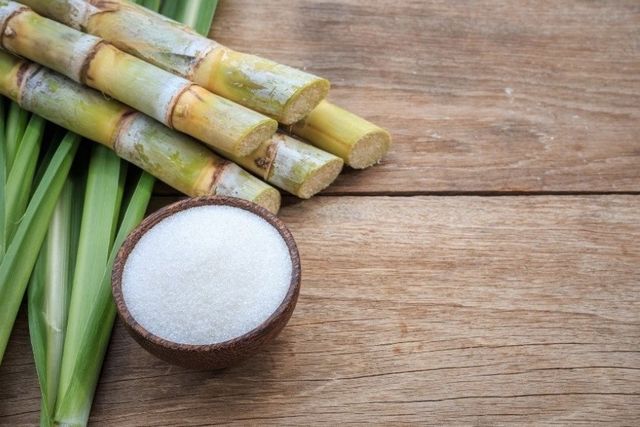Effective Cane Sugar Processing: Optimizing Return and Pureness
Effective Cane Sugar Processing: Optimizing Return and Pureness
Blog Article
A Comprehensive Introduction of the Wellness and Economic Effects of Walking Cane Sugar Handling on Local Communities
Cane sugar processing plays an essential function in shaping the economic landscape of local communities, using work chances and boosting secondary sectors. The health and wellness implications connected with high sugar consumption can not be overlooked, as they contribute to increasing prices of weight problems and diabetic issues.
Financial Advantages of Walking Stick Sugar Processing
Walking stick sugar handling provides considerable economic advantages that expand beyond the instant agricultural sector. The cultivation and processing of sugarcane develop countless job possibilities, from farming to production and circulation. This work generation not just sustains regional economies however also cultivates area advancement by providing secure income resources for households.
Furthermore, the sugar sector promotes ancillary organizations, including transport, equipment supply, and product packaging solutions (Cane Sugar Processing). As these markets grow, they add to an extra durable economic framework, enhancing general area strength. The export capacity of refined walking cane sugar additionally magnifies financial advantages, positioning regions as affordable players in international markets
Investment in modern handling centers can bring about increased performance and effectiveness, therefore minimizing waste and maximizing resource use. This change not just benefits the local economic situation but additionally supports sustainability efforts by reducing ecological influences.
In addition, the revenue created from cane sugar processing can be reinvested in regional infrastructure, education, and healthcare, promoting alternative neighborhood development. Generally, the financial benefits of walking cane sugar handling are complex, giving a structure for enduring prosperity in farming areas.
Health Risks Related To Sugar Usage
Excessive sugar usage presents considerable health dangers that require major interest. High intake of added sugars, particularly from refined beverages and foods, has been connected to numerous health complications.
Additionally, high sugar intake is connected with heart disease. Raised blood sugar degrees can lead to insulin resistance, a forerunner to various heart-related problems. Additionally, sugar can have destructive effects on dental health and wellness, causing tooth cavities and gum illness, as germs in the mouth thrive on sugar, creating acids that deteriorate tooth enamel.
In addition, arising research study suggests a potential link between high sugar usage and psychological health and wellness disorders, such as clinical depression and stress and anxiety. As areas face these health and wellness risks, it becomes necessary to promote understanding and urge healthier dietary choices. Addressing sugar consumption is crucial not only for specific health and wellness however also for the overall health of neighborhood communities, stressing the requirement for comprehensive public health and wellness strategies.
Environmental Impacts of Sugar Manufacturing
Often overlooked in discussions about sugar's implications is the significant ecological influence of sugar production. The cultivation of sugarcane frequently requires substantial land use, causing logging, loss of biodiversity, and interruption of neighborhood ecosystems. The conversion of woodlands and marshes into sugar vineyards can cause environment damage, threatening numerous varieties and changing ecological equilibrium.
Additionally, sugar production is resource-intensive, consuming significant amounts of water for watering. This can lead to depletion of regional water sources, adversely affecting both farming practices and neighborhood access to clean water. Additionally, using chemical fertilizers and pesticides in sugarcane farming can add to dirt deterioration and water contamination, as drainage from these chemicals goes into nearby rivers and lakes, affecting aquatic life and human health.
The ecological footprint encompasses the handling stage, where energy usage and waste generation more worsen environmental concerns. Air contamination from burning sugarcane areas, along with greenhouse gas discharges, add to climate adjustment. As such, the environmental ramifications of sugar manufacturing warrant severe consideration, advising stakeholders to embrace more sustainable methods to minimize these unfavorable effects on local environments and neighborhoods.
Job Production and Area Advancement
The ecological challenges posed by sugar manufacturing are often reversed by its capacity for economic benefits, especially in work creation and area development. The walking stick sugar sector functions as a considerable resource of work in numerous backwoods, visit this site right here providing tasks throughout numerous skill levels, from agricultural labor to processing and circulation roles. This employment not only sustains private family members yet additionally adds to the total economic vigor of neighborhood neighborhoods.
In addition, the facility of sugar processing facilities stimulates secondary services, such as transport services, equipment supply, and maintenance service providers. As these businesses prosper, they produce extra tasks and boost neighborhood economic climates. The earnings created from the sugar sector also leads to enhanced tax incomes, which can be reinvested into social work such as education, health care, and infrastructure development.
Moreover, the sugar sector frequently takes part in area growth initiatives, such as supporting neighborhood institutions and health programs, thus improving the lifestyle for residents. By promoting solid area connections and advertising financial growth, the walking stick sugar processing industry plays a crucial duty in uplifting neighborhood populations, making it a crucial element of sustainable growth approaches in sugar-producing regions.
Harmonizing Wellness and Economic Growth
In browsing the complexities of cane sugar processing, a critical difficulty hinges on balancing wellness considerations with financial growth. The sugar industry considerably adds to local economies by creating tasks, promoting relevant markets, and enhancing tax obligation profits. However, the wellness ramifications related to excessive sugar intake can bring about persistent conditions such as excessive weight, diabetes, and cardiovascular problems, which can concern public health systems and diminish labor force performance.

In addition, regulative structures can play a pivotal duty in directing industry methods towards more lasting and health-conscious techniques. By fostering cooperation between government bodies, health and wellness companies, and the sugar market, communities can navigate the dichotomy of wellness and economic development, making sure that the benefits of walking stick sugar handling are equitably shared while focusing on public wellness.
Conclusion
In verdict, the processing of walking stick sugar offers both considerable financial advantages and significant health dangers for regional neighborhoods. While it cultivates task production and promotes local advancement, the associated wellness worries, particularly regarding excessive weight and diabetes, demand a mindful balancing act. By promoting accountable usage and investing in community education and sustainable practices, it is possible to maximize financial benefits while minimizing damaging health and wellness effects, consequently making sure a much healthier future for regional populations.
Additionally, sugar can have harmful results sites on dental wellness, resulting in dental you can look here caries and gum tissue illness, as microorganisms in the mouth flourish on sugar, generating acids that erode tooth enamel.
Resolving sugar usage is vital not only for specific wellness but likewise for the total health of neighborhood neighborhoods, stressing the requirement for extensive public health and wellness techniques.
Frequently overlooked in conversations concerning sugar's implications is the significant environmental effect of sugar production. The health and wellness implications linked with excessive sugar usage can lead to persistent conditions such as obesity, diabetic issues, and cardio concerns, which can burden public wellness systems and lessen workforce performance.

Report this page